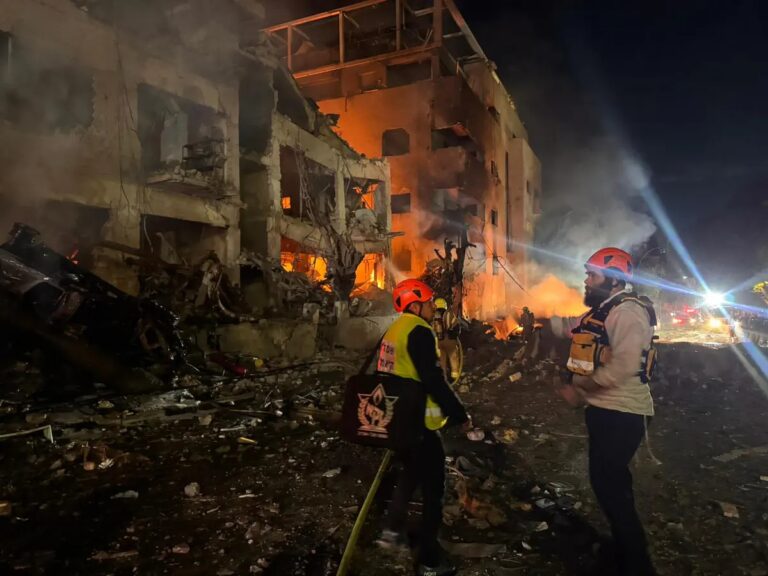The ex-con turned sniper who killed two firefighters wanted to make sure his goodbye note was legible, typing out his desire to “do what I like doing best, killing people” before setting the house where he lived with his sister ablaze, police say.
Police Chief Gerald Pickering said Tuesday that the 62-year-old loner, William Spengler, brought plenty of ammunition with him for three weapons including a military-style assault rifle as he set out on a quest to burn down his neighborhood just before sunrise on Monday morning.
And when firefighters arrived to stop him, he unleashed a torrent of bullets, shattering the windshield of the fire truck that volunteer firefighter and police Lt. Michael Chiapperini, 43, drove to the scene. Fellow firefighter Tomasz Kaczowka, 19, who worked as a 911 dispatcher, was killed as well.
Two other firefighters were struck by bullets, one in the pelvis and the other in the chest and knee. They remained hospitalized in stable condition and were expected to survive.
On Tuesday, investigators found a body in the Spengler home, presumably that of the sister a neighbor said Spengler hated: 67-year-old Cheryl Spengler. Spengler’s penchant for death had surfaced before. He served 17 years in prison for manslaughter in the 1980 hammer slaying of his grandmother.
But his intent was unmistakable when he left his flaming home carrying a pump-action shotgun, a .38-caliber revolver and a .223-caliber semiautomatic Bushmaster rifle with flash suppression, the same make and caliber weapon used in the elementary school massacre in Newtown, Conn., that killed 26.
“He was equipped to go to war, kill innocent people,” the chief said of a felon who wasn’t allowed to possess weapons because of his criminal past. It was not clear how he got them.
The assault rifle was believed to be the weapon that struck down the firefighters. He then killed himself as seven houses burned on a sliver of land along Lake Ontario. His body was not found on a nearby beach until hours afterwards.
The motive was left unclear as well, Pickering said, even as authorities began analyzing a two- to three-page typewritten rambling note Spengler left behind.
He declined to reveal the note’s full content or say where it was found. He read only one chilling line: “I still have to get ready to see how much of the neighborhood I can burn down, and do what I like doing best, killing people.”
Pickering added: “There was some rambling in there and some intelligence we need to follow up on.”
It remained unknown what set Spengler off but a next-door neighbor, Roger Vercruysse, noted that he loved his mother, Arline, who died in October after living in the house in a neighborhood of seasonal and year-round homes across the road from a lakeshore popular with recreational boaters.
Pickering said it was unclear whether the person believed to be Spengler’s sister died before or during the fire.
“It was a raging inferno in there,” Pickering said.
As Pickering described it and as emergency radio communications on the scene showed, the heavily armed Spengler took a position behind a small hill by the house as four firefighters arrived after 5:30 a.m. to extinguish the fire: two on a fire truck; two in their own vehicles.
Several firefighters went beneath the truck to shield themselves as an off-duty police officer who came to the scene pulled his vehicle alongside the truck to try to shield them, authorities said.
The first police officer who arrived chased and exchanged shots with Spengler, recounting it later over his police radio.
“I could see the muzzle blasts comin’ at me. … I fired four shots at him. I thought he went down,” the officer said.
At another point, he said: “I don’t know if I hit him or not. He’s by a tree. … He was movin’ eastbound on the berm when I was firing shots.” Pickering portrayed the officer as a hero who saved many lives.
The audio posted on the website RadioReference.com also has someone reporting “firefighters are down” and saying “got to be rifle or shotgun — high-powered … semi or fully auto.”
Spengler had been charged with murder in his grandmother’s death but pleaded guilty to a reduced charge of manslaughter, apparently to spare his family a trial. After he was freed from prison, Spengler had lived a quiet life on Lake Road on a narrow peninsula where Irondequoit Bay meets Lake Ontario.
That ended when he left his burning home Monday morning, armed with his weapons, a lot of ammunition and a measure of hate.
“I’m not sure we’ll ever know what was going through his mind,” Pickering said.
(AP)










